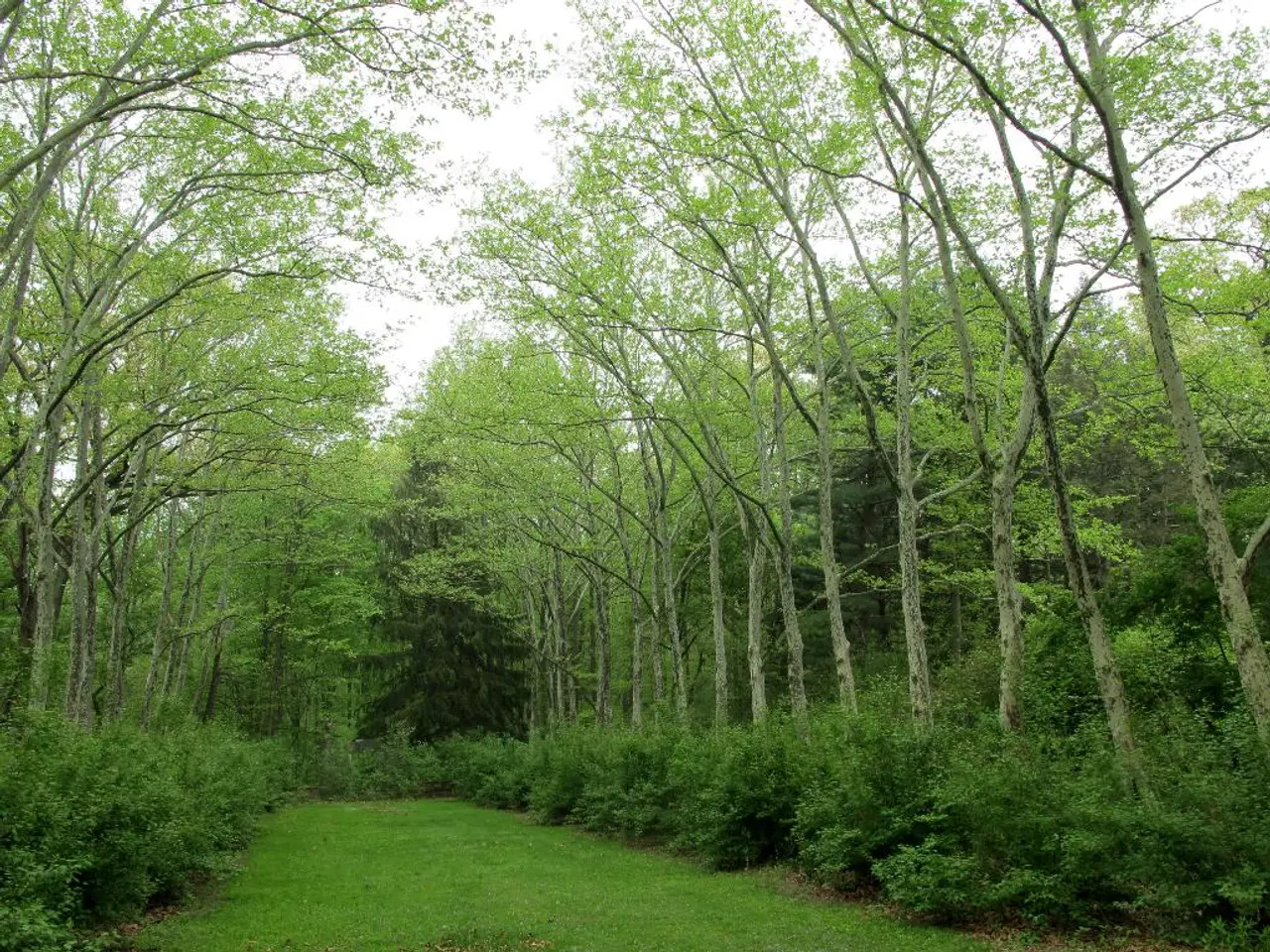Pioneering farm in Devon embraces various creatures, such as weed, slugs, moles, and mice, through natural farming methods
A Farmer Embraces Natural Farming: A Journey Towards Sustainable Agriculture
In the picturesque landscapes of north Devon, a farmer has found a new approach to farming that aligns with nature and promotes environmental protection. This individual, inspired by the philosophy of natural farming, has embarked on a journey to create a self-sustaining ecosystem on their farm.
The journey began after returning from military service in Afghanistan, when the farmer enrolled in a horticulture diploma to learn about gardening and protect the environment. The farmer's dream was to learn natural farming, inspired by the book "The One-Straw Revolution" by Masanobu Fukuoka.
The farm, now part of The Collective at Woolsery, has become a testament to the benefits of natural farming. Agroforestry and perennials have come to define the farm, with food forests, perennial vegetables, and syntropic agriculture becoming key themes. The farm has converted an old dairy pasture to prove that food can be grown as part of an ecosystem where all animals and insects are welcome.
The farmer promotes trying something different in farming, advocating for a shift away from traditional methods that rely heavily on synthetic chemical inputs. Despite the use of compost and sprays, the farmer sensed an underlying sickness in the soil and plants. This led to a realisation that chemical management was common and self-sufficiency was often questioned in various gardens.
The farm's approach to natural farming includes Zero Budget Natural Farming (ZBNF), which avoids synthetic fertilizers and pesticides, uses cow dung-based preparations, and seeks to minimize farmers' net investment. This philosophy has brought numerous benefits, including promoting biodiversity, reducing chemical inputs, improving soil health, lowering production costs, and encouraging ecological harmony.
Weeds play a crucial role at the farm, encouraging pollination, building fertility, and creating easy, complex polycultures with vegetables. The farm has found that weeds don't compete as much, slugs eat less, and the ecosystem rebuilds itself over time. Pests are an important part of the system, with more slugs meaning more beetles and birds keeping pigeons away.
The farm supplies local sustainable produce for The Farmers Arms pub in the village, understanding the importance of biodiversity and climate resilience. The Collective at Woolsery can be found at woolsery.com. The farmer's perspective on natural farming is that it is about one's love and passion for food, nature, and people.
The farmer learned not to separate themselves from the ecosystem and that compassionate intervention is just as important as the mole or worm. The farmer was told to remove habitat such as leaves from under shrubs, which they found unnecessary. The farmer's experiences in the USA studying compost and soil health led to questions about the inputs required in regenerative farming.
The farmer found inspiration in Japan for natural farming, but realized it is a personal philosophy rather than a set of instructions. The farmer's employer in north Devon supported this approach with its weeds and organised chaos, fostering an environment where natural farming could thrive.
- The farmer's journey towards sustainable agriculture includes a focus on garden design and horticulture, as evidenced by their enrollment in a horticulture diploma.
- The farm, now part of The Collective at Woolsery, embodies a natural farming approach, incorporating elements such as agroforestry, perennials, and food forests.
- The farmer advocates for an environmental-science-informed approach to farming, promoting the growth of plants, flowers, and crops without relying heavily on synthetic chemical inputs (like pesticides and fertilizers).
- In the farm's natural farming philosophy, weeds are utilized to encourage pollination, build fertility, and create complex polycultures with vegetables.
- By adopting the Zero Budget Natural Farming (ZBNF) method, the farm seeks to minimize environmental impact, reduce chemical inputs, improve soil health, lower production costs, and better align with nature.
- The lifestyle and home-and-garden communities may take inspiration from the farmer's perspective on natural farming, which values food, nature, and people within a synchronized, self-sustaining ecosystem.
- The farm's adoption of natural farming practices has led to biodiversity promotion, ecological harmony, and provides sustainable produce for local establishments like The Farmers Arms pub.





